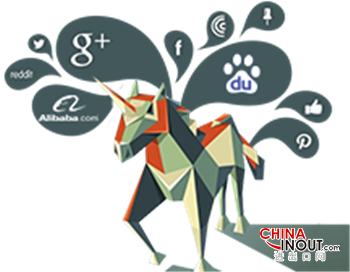总部位于旧金山的收购集团Francisco Partners最近发表了一份精辟的分析,它对于任何揣测科技股未来的人都很重要。在这份分析中,悲观者和乐观者都能找到希望,它为那些对科技公司当前估值感到纳闷的人提供了一个有帮助的视角。
首先是坏消息。2000年市值最高的15家科技公司已严重萎缩,市值损失约1.35万亿美元,约占它们总市值的60%。只有微软(Microsoft)一家的市值高于2000年水平。市值滑坡的一个不寻常之处在于,它没有像一些人可能猜测的那样,发生在当年被大肆炒作的网络奇迹公司身上。相反,这种不幸落在了多数曾经被视为蓝筹科技股的公司身上。2000年,北电网络(Nortel)市值高达2090亿美元,与同业一样,该公司的市值因为当年的市场热情而膨胀;后来该公司破产。尽管其他科技巨擘避免了这种不光彩结局,但它们的长期股价图表惨不忍睹。思科(Cisco)市值已从4030亿美元降至1440亿美元;英特尔(Intel)市值已从2880亿美元降至1610亿美元;EMC的市值从2180亿美元降至510亿美元。
对于2000年的知名公司而言,最大跌幅出现在系统、硬件和半导体等表现日益恶化的业务领域。这是因为计算成本持续下滑、开放源软件崛起、转向“云计算”的趋势,以及大规模数据中心的兴起,在数据中心领域,亚马逊(Amazon)、谷歌(Google)和Facebook等公司都在设计自己的策略。
现在说点让人比较愉快的事情吧。2000年总市值不到100亿美元的15家公司,如今就市值而言已跻身全球科技公司50强,它们的总市值高达2.1万亿美元。(如果加上亚马逊(而不是将其列为一家零售商),这个数字会再增加2500亿美元)。即使在2000年,苹果(Apple)仍只是被视为一家奇特的公司,如今其市值已从60亿美元飙升至6590亿美元。这份名单体现出这样几个主题:新颖性的威力、重心转向中国的趋势、耐心的好处以及资本效率的重要性。
如今市值最高的几家科技公司在2000年甚至还未问世。Facebook、linkedIn和Twitter三家公司的历史加起来也就33年。2000年,就连谷歌和Salesforce也还只是地平线上的小点。这些公司现在的总市值约为8500亿美元。除了它们在各自的数据中心运行的一些定制系统以及(就谷歌而言)像Nexus手机和Chrome笔记本等副业以外,这些公司都没有费神染指棘手的硬件业务。它们的成功来自于巧妙的软件部署,特别是“基于云”的软件,以及(就Facebook、 linkedIn、Twitter以及谷歌的YouTube服务而言)组织和整理用户生成的内容。
目前在市值排行榜上位居第四、第五和第六位的公司是阿里巴巴(Alibaba)、腾讯(Tencent)和百度(Baidu)。这三家公司目前的总市值为4090亿美元,这不仅证明了中国在15年里取得了巨大进步,还预示着未来几十年的格局。中国正越来越注重发展自主技术。低估中国的大批新兴竞争对手将会带来的挑战,将给西方科技公司管理层带来厄运。驱使中国竞争对手的雄心和工作文化是欧美难以匹敌的。
最后说一下这份名单体现出的另外两个主题:耐心和利润。
科技公司的多数投资者会浪费巨额资金,因为他们对短期恐慌或全球动荡做出条件反射式的反应,而不是专注于符合历史潮流的新兴企业的持久力。
对于当前所有10亿美元级的“独角兽”企业的创始人和首席执行官而言,还有一条永恒的信息。在2008年左右之前创建的几乎所有科技巨擘,当初都需要很少的资金投入。例如,谷歌在实现盈利之前仅消耗了800万美元。这或许意味着,新一类的公司迟早会流行:它们将是被称为“盈利独角兽”的珍稀物种。

The San Francisco-based buyout firm Francisco Partners recently published a delicious analysis relevant to anyone wondering about what the future holds for technology stocks. It is a bulletin in which both pessimists and optimists can find hope and it offers a helpful perspective for those wondering about the current valuations of technology companies.
First, the bad news. The 15 technology companies with the largest market capitalisations in 2000 have been decimated — losing about $1.35tn, or roughly 60 per cent, of their combined market value. only one, Microsoft, has a market capitalisation that is higher than in 2000. One extraordinary aspect of this meltdown is that it did not occur, as some might suspect, in the much ballyhooed dotcom wonder companies of yesteryear. Instead it was a blight that affected most of what were once considered blue-chip technology holdings. In 2000, Nortel sported a market value of $209bn that, like those of its classmates, had been bloated by the enthusiasm of the era; it has since gone bankrupt. While other members of this corporate bracket have avoided that ignominy, their long-term stock charts present bleak pictures. Cisco’s market value has faded from $403bn to $144bn; Intel’s from $288bn to $161bn; and EMC’s from $218bn to $51bn.
For the class of 2000, the sharpest property price declines have been in the deteriorating neighbourhoods of systems, hardware and semiconductors. This is because of the continuing decline in the cost of computing, the rise of open-source software, the move to the “cloud” and the emergence of huge datacentres where companies such as Amazon, Google and Facebook are designing their own approaches.
Now a word from sunnier climes. Fifteen companies that were together worth less than $10bn in 2000 are now among the world’s 50 top technology companies as measured by market capitalisation, with a combined worth of $2.1tn. (Had Amazon been included, rather than being classified as a retailer, this number would have swollen by another $250bn). Apple, which even in 2000 was viewed as little more than a curiosity, has risen in value from $6bn to $659bn. A few themes jump out of this listing: the power of novelty, the shift towards China, the benefits of patience and the virtues of capital efficiency.
Several of today’s most valuable technology companies did not even exist in 2000. Facebook, linkedIn and Twitter together have a collective corporate history of only 33 years. Even Google and Salesforce were barely smudges on the horizon in 2000. These companies now have a combined value of about $850bn. Beyond some of the customised systems they operate in their own datacentres, and in Google’s case, some sideline activities such as its Nexus phones and Chrome notebooks, none of these companies sully their hands with anything as taxing as hardware. They have thrived from the artful deployment of software, in particular the “cloud based” variant, and — for Facebook, linkedIn, Twitter (and Google’s YouTube service) — organising and collating the contributions of their users.
Perched in a clump as the fourth, fifth and sixth most valuable technology companies of the day are Alibaba, Tencent and Baidu. This threesome is now worth $409bn — testament not just to how much China has progressed in a decade and a half but a harbinger of the next several decades as the country places increasing emphasis on spawning its own technology. Woe betide the management of any western technology company that underestimates the challenge posed by the vast number of emerging Chinese competitors, fuelled by an ambition and work regimen that is hard to match in Europe and the US.
Finally, a note about two other themes that jump out of this listing: patience and profits.
Most investors in technology companies squander vast sums by reacting to short-term jitters or global jolts rather than concentrating on the staying power of those emerging enterprises on the right side of history.
And for the founders and chief executives of all of the current billion-dollar “unicorns” there is another abiding message. Almost all of today’s technology juggernauts formed before about 2008 required smallish amounts of capital. Google, for example, consumed only $8m before turning profitable. Maybe this means that sooner or later a new class of company will come into vogue — a rare species known as the profitable unicorn.











